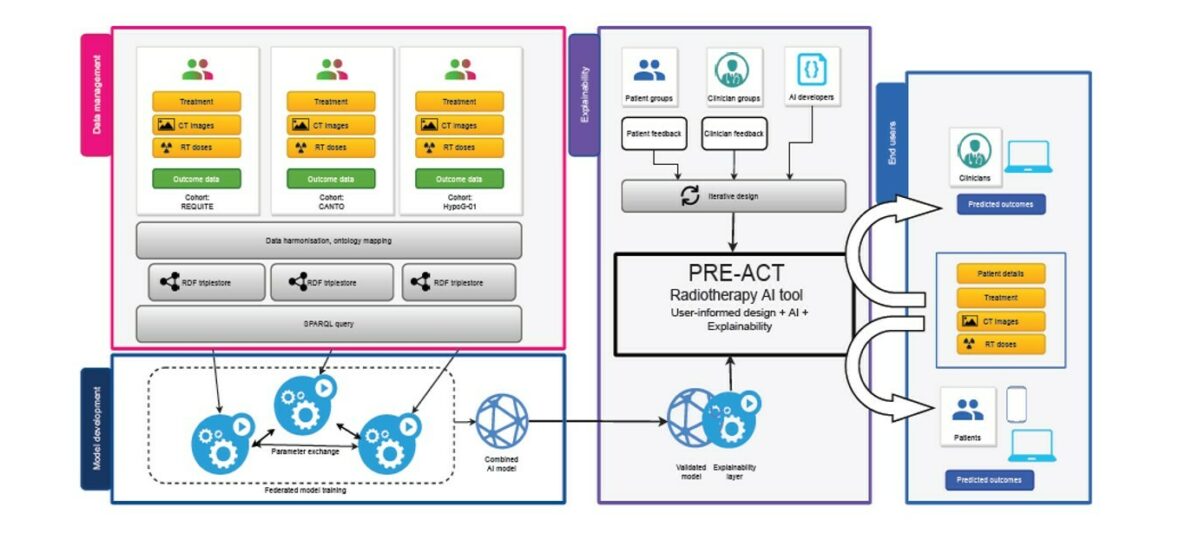The PRE-ACT methodology
Tuesday, 6 February 2024
PRE-ACT will use rich datasets from three multi-centre patient cohorts (REQUITE, CANTO and HypoG-01) to design and implement an AI tool that predicts the risk of side effects, including arm lymphedema after locoregional irradiation. The tool will provide an easily understood explanation to support shared decision-making between the patient and physician regarding radiation treatment option.
Integrated approach to oncology data utilization and analysis
In this comprehensive initiative, diverse oncology datasets are amalgamated through rigorous data completion protocols and an innovative end-to-end solution for FAIR-ification. Moreover, leveraging health economics methodologies, we aim to advocate for the revision of clinical guidelines and practices.
Advanced ML methods will be used to analyse the complex and rich multidimensional radiotherapy datasets combining 3D imaging and dose distribution data, genomics data, multimodal treatment data, medical data on co-morbidities and behavioural and socioeconomic factors. AI models and architectures will be generalised so that: (i) they are applicable for side effect prediction for other cancer; (ii) they are amenable to distributed training on potentially geographically dispersed/constrained data. Biases inherent in the datasets and incurred by the AI algorithms will be identified and resolved to ensure that the predictions are robust and fair to ethnicity, healthcare systems, and local context biases.
Explainability
An explainability layer will be embedded in the AI models and the AI platform so that the AI-based risk prediction comes with an elucidation written in plain language that is intuitive and accessible to the patient and the clinician.
User Interface
End-users will be included, mobilized and integrated in the process early on through a process of iterative co-design and constant feedback to the AI system from users. Doctors and patients will be endowed with the capability to make much better decisions than today about the choice of radiotherapy approach to follow by receiving an easily understood risk prediction tailored to their level of knowledge. The impact of AI risk prediction models will be investigated using innovative, pragmatic clinical trial designs, in which the treatment options will be by the patient and the doctor rather than directed by the trial.
